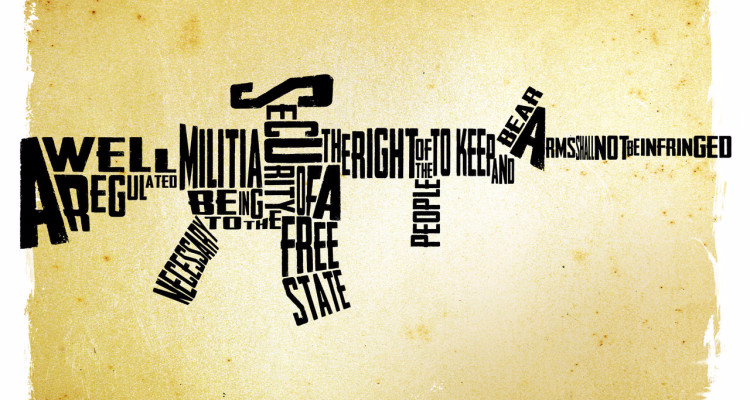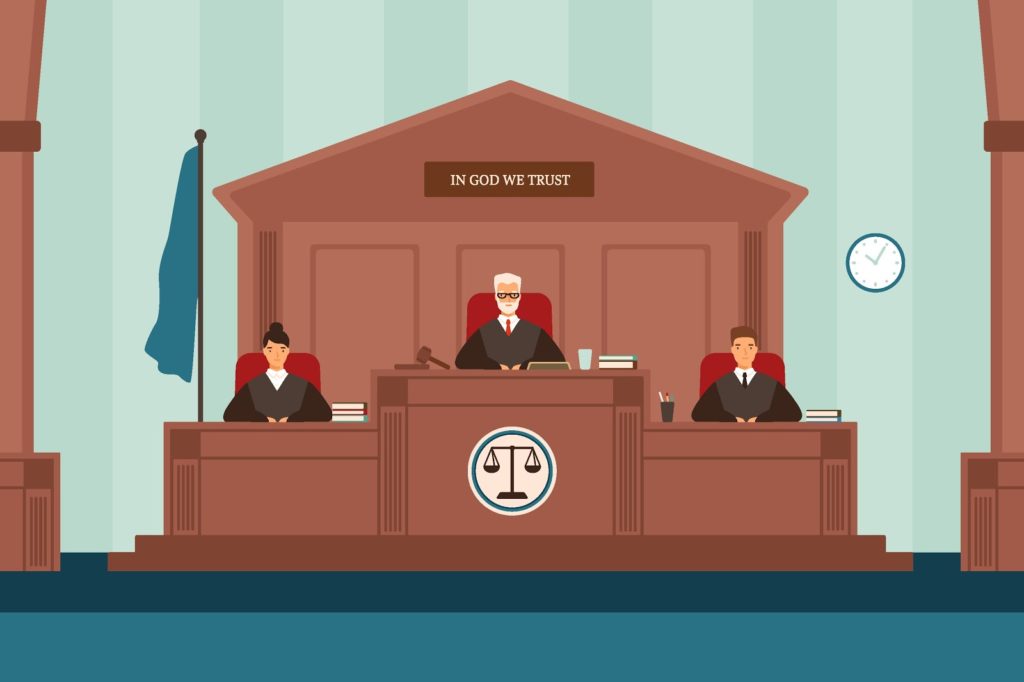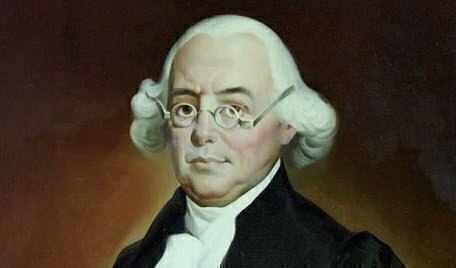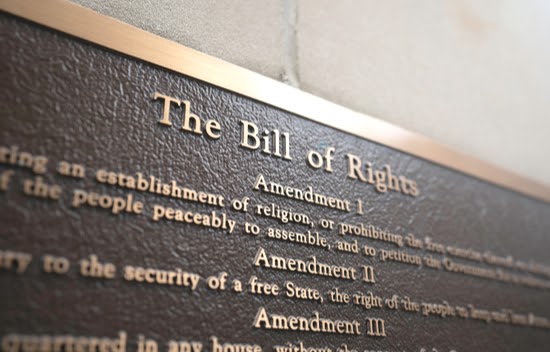
We the people of the United States know very little detailed information about the constitution. In 2019, a study showed only 15 percent of Americans knew the Constitution was written in 1786. It gets a little better, 25 percent knew there are 27 amendments to the Constitution. As American citizens, we should know the rights our country was founded on and the ones that were added on along the way. The first ten amendments are known as the Bill of Rights. These rights were given to us, to keep the government in its place, and make us a free nation. The founding fathers didn’t want the government to take over too much like the British. It is important to know all your rights as an individual free America. In this three part series, we will look at all 27 amendments starting with the Bill of Rights.
- Congress shall make no law respecting an establishment of religion, or prohibiting the free exercise thereof; or abridging the freedom of speech, or of the press; or the right of the people peaceably to assemble, and to petition the Government for a redress of grievances.
Amendment one is probably the most important. The freedoms it establishes are what make Americans a free people. In short, this means in modern times, we have freedom to go to the church of our choice, post how we feel on social media, or even peacefully protest things we decide are wrong. The first amendment was written by people who left the grip of the monarchy. They wanted to make sure the citizens and anyone else in America, were free to express themselves and their concerns with the country’s leaders. This makes us one of the freest countries in the world.

2. A well regulated Militia, being necessary to the security of a free State, the right of the people to keep and bear Arms, shall not be infringed.
The second amendment was written to protect the people from the government. When this was written there was a fear of the government becoming too powerful and citizens not having a way to defend themselves as in Europe where citizens could not own guns. The founding fathers decided citizens must never be disarmed in case they needed to protect their country from a tyrant taking over. In modern times, this gives you the right to own firearms in order to defend life and liberty. There is a lot of debate about civilians owning automatic and military grade weapons. If you consider the purpose of the second amendment then you would realize that banning civilians from owning military grade weapons or weapons in general goes against the second amendment. The second amendment makes us free and helps make sure that freedom is protected at all costs.
3. No Soldier shall, in time of peace be quartered in any house, without the consent of the Owner, nor in time of war, but in a manner to be prescribed by law.
This is one of the least litigated amendments in modern times. This means that you do not have to house troops in your home against your will. This is different from warranted investigations and the entry of government officials to your home. This solely means that you do not have to house and provide for troops. They have separate accommodations. Currently, we have military housings and barracks that troops occupy.

4. The right of the people to be secure in their persons, houses, papers, and effects, against unreasonable searches and seizures, shall not be violated, and no Warrants shall issue, but upon probable cause, supported by Oath or affirmation, and particularly describing the place to be searched, and the persons or things to be seized.
The fourth amendment is where entry of your home comes into play. This protects you from illegal search and seizure of your personal space and items. In order for you to be searched there must be probable cause, a warrant must state what they are looking for exactly and where they are able to search for it. When this was written, the writers were remembering “general warrants” the British had for troops to search for things the colonists had not paid taxes for. This keeps the police from being able to enter your home without a warrant. They can still search your car or detain you in a public space with probable cause or given permission to search. Any evidence that is in plain view of officers is subject to search and seizure.
5. No person shall be held to answer for a capital, or otherwise infamous crime, unless on a presentment or indictment of a Grand Jury, except in cases arising in the land or naval forces, or in the Militia, when in actual service in time of War or public danger; nor shall any person be subject for the same offence to be twice put in jeopardy of life or limb; nor shall be compelled in any criminal case to be a witness against himself, nor be deprived of life, liberty, or property, without due process of law; nor shall private property be taken for public use, without just compensation.
You may hear this in hollywood as “I plead the fifth.” This means you don’t have to incriminate yourself and tell the government anything about a crime you may or may not have committed. You don’t have to answer questions that would incriminate you in any way. When this was written, the colonists wanted to make sure every person had the ability to be innocent until the state proved otherwise. It is up to the state to prove guilt, you don’t have to prove you’re innocent. This amendment was one of the big factors in the decision to begin to mirandize people who were arrested in 1966 after a court case in Arizona. This amendment also says the government has the ability to take your property granted they give you just compensation; they can take your property as long as it benefits the public good. This means if a builder wants to come and build a hospital the government could pay you for your house and make you move since the hospital would benefit the public.
6. In all criminal prosecutions, the accused shall enjoy the right to a speedy and public trial, by an impartial jury of the State and district wherein the crime shall have been committed, which district shall have been previously ascertained by law, and to be informed of the nature and cause of the accusation; to be confronted with the witnesses against him; to have compulsory process for obtaining witnesses in his favor, and to have the Assistance of Counsel for his defence.
In this amendment, we are given the right to having a trial. This means you can’t be sent to prison without having a trial with evidence proving your guilt. To prove guilt, the burden of evidence is put upon the state to provide. Your neighbor can’t say that you broke into his house and police come and throw you in prison for years. You can thank amendment six. We are also given a right to an attorney and witnesses to testify for your side. Cases rarely go to a jury in modern times since plea bargains are often offered for lesser sentencing to save time and money in the system. When this was written, the founding fathers were dealing with the British judging crimes in a secret night court away from public view. They wanted to be sure we would have a right to public trials so that the government would be kept honest. This amendment applies to both federal and state cases.

7. In Suits at common law, where the value in controversy shall exceed twenty dollars, the right of trial by jury shall be preserved, and no fact tried by a jury, shall be otherwise re-examined in any Court of the United States, than according to the rules of the common law.
In modern times, this amendment gives you the right to a jury in federal civil court cases. This applies only to federal court. This was written to ensure that we would always have the right to a jury whether it be a criminal or civil case. The burden of proof in these cases is on the plaintiff (the person making the claim). They must provide a “preponderance” of evidence showing the claim has a 50 percent chance, or greater, of being true. When this was written, in order for a civil case to go to court it had to be over 20 dollars which was a month’s wages. In modern times, in order for a case to go to federal court, there must be a dispute of $75,000 or greater.
8. Excessive bail shall not be required, nor excessive fines imposed, nor cruel and unusual punishments inflicted.
This was written in response to the torture tactics of the British. There is a lot of debate on what constitutes cruel and unusual punishment in modern times. Some people believe the amendment is basically irrelevant because it’s based on a time that was very different than today. Others think the definition of cruel and unusual punishment should change with socially accepted morals. There is a lot of debate when it comes to the death penalty and the excessive use of solitary confinement in the prison system. There have been cases of prison conditions for inmates on death row and in solitary confinement that were found to go against the eighth amendment.

9. The enumeration in the Constitution, of certain rights, shall not be construed to deny or disparage others retained by the people.
This means any rights not established in the Constitution are also protected. That means you are entitled to exercise your rights as an individual. There was a lot of debate with the original authors of the amendment. James Wilson did not want to include a bill of rights in the constitution at all. This was based on a fear that if the rights were put on paper those would be the only ones we would get and the government would take over every other aspect. This amendment was put in place to prevent that from happening. Even the rights that aren’t officially recognised, are protected.
10. The powers not delegated to the United States by the Constitution, nor prohibited by it to the States, are reserved to the States respectively, or to the people.
This amendment exists to keep the federal government from taking powers that aren’t laid out in the constitution. In modern day, this is used to be sure any powers taken by the federal government do not go against what is already established. This amendment is basically a safety net ensuring that all other amendments are looked at when the federal government is making laws.

The Constitution and the Bill of Rights are our building blocks as a country and the rights of today. All decisions in law-making are decided around our rights as people. Knowing your rights as a free American is important so that you know where we came from and how our country is supposed to run. This way, you can be an essential protector of freedom in America. In our next installment, we will look at the abolishment of slavery, the prohibition of liquor, and women’s right to vote just to name a few.
Author: Erinn Malloy

